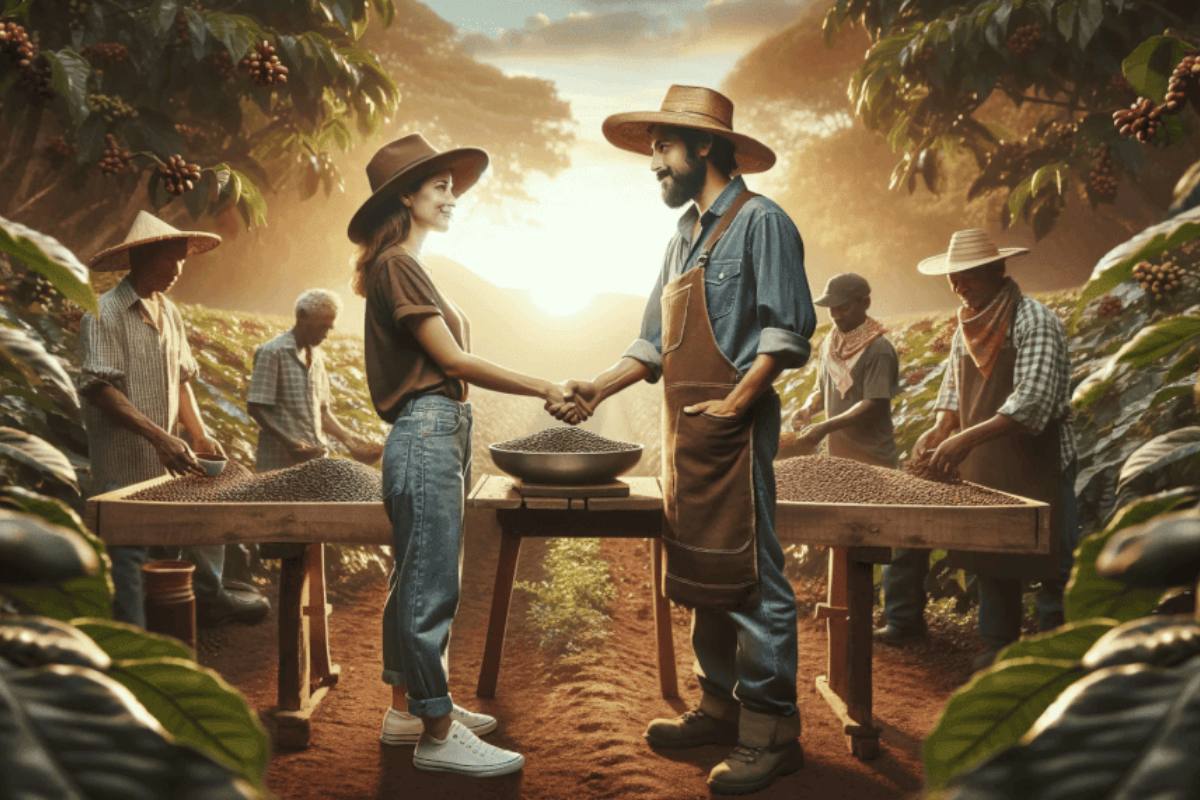In recent years, direct trade has become a prominent model in the coffee industry. Unlike traditional trade systems, where several intermediaries handle the product before it reaches the roaster, direct trade builds a closer, more transparent connection between coffee roasters and farmers. This model promotes higher quality coffee, ethical practices, and better economic opportunities for producers.
1. What Is Direct Trade?
Direct trade refers to a sourcing approach in which coffee roasters buy beans directly from farmers or cooperatives. It differs from fair trade in that it is not governed by a certification body. Instead, direct trade is based on direct relationships, mutual trust, and shared goals.
Roasters who engage in direct trade often visit the farms, assess production methods, and collaborate with farmers on cultivation, harvesting, and post-processing techniques. The focus is on building long-term partnerships that benefit both parties.
2. Financial Benefits for Farmers
One of the most significant advantages of direct trade is the financial reward for producers. Traditional coffee trade often leaves farmers with a small fraction of the final retail price. With direct trade, farmers are paid above market prices for their beans—sometimes double or even triple the standard rate.
These premiums allow farmers to invest in better equipment, improve infrastructure, and hire more skilled labor. It also helps create economic stability in rural communities, reducing dependence on volatile commodity prices.
3. Focus on Coffee Quality
Direct trade incentivizes quality over quantity. Since roasters are paying premium prices, they expect premium beans. This motivates farmers to adopt practices that enhance the final product’s flavor, such as careful picking of ripe cherries, cleaner processing techniques, and more precise drying methods.
Roasters may also provide feedback and technical support, helping farmers understand international quality standards and taste preferences. This collaborative effort results in better, more consistent coffee—and allows small producers to enter the specialty coffee market.
4. Transparency and Traceability
In the age of conscious consumerism, people want to know where their coffee comes from. Direct trade fosters full traceability. Roasters can share detailed information about the farm, region, varietals, and processing methods, providing customers with a deeper appreciation of the product.
This transparency not only builds trust but also strengthens the brand identity of both the roaster and the farm. Consumers are more likely to support companies that align with their values.
5. Environmental and Social Sustainability
The extra income from direct trade enables farmers to adopt more sustainable farming methods. These might include:
- Shade-grown coffee practices to protect biodiversity
- Organic fertilization and composting
- Water conservation techniques during processing
In many cases, direct trade relationships extend beyond the farm. Roasters may invest in community development, including:
- Educational programs
- Healthcare initiatives
- Clean water access
- Infrastructure improvements
These long-term investments help build stronger, healthier coffee-growing communities.
6. Challenges of the Direct Trade Model
While direct trade has many advantages, it also presents challenges. Not all farmers have access to the tools, knowledge, or infrastructure required to meet specialty standards. Language barriers, logistics, and travel costs can complicate relationships between roasters and producers.
Moreover, because direct trade is not standardized, the term can be used inconsistently. It relies heavily on the ethics and transparency of the roaster. Some companies may claim to practice direct trade without upholding its core principles.
Summary: Why Direct Trade Matters
Direct trade represents a shift toward a more ethical, transparent, and quality-driven coffee industry. By building direct relationships, roasters and farmers can work together to elevate both the product and the people behind it. It’s a model that empowers producers, delights consumers, and contributes to a more sustainable global coffee market.
For coffee lovers, choosing direct trade means more than enjoying great flavor—it means supporting a supply chain built on respect, fairness, and shared success.
